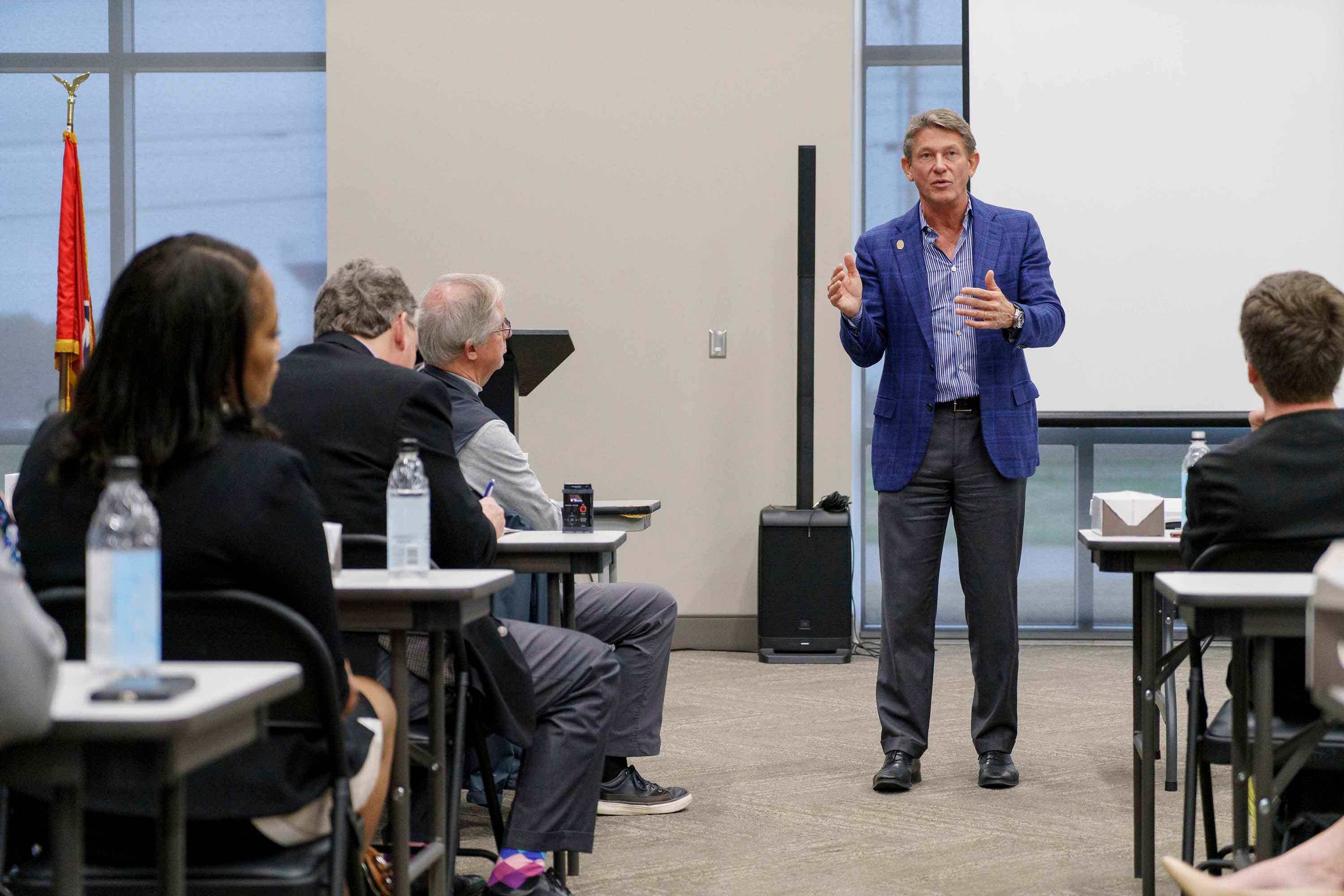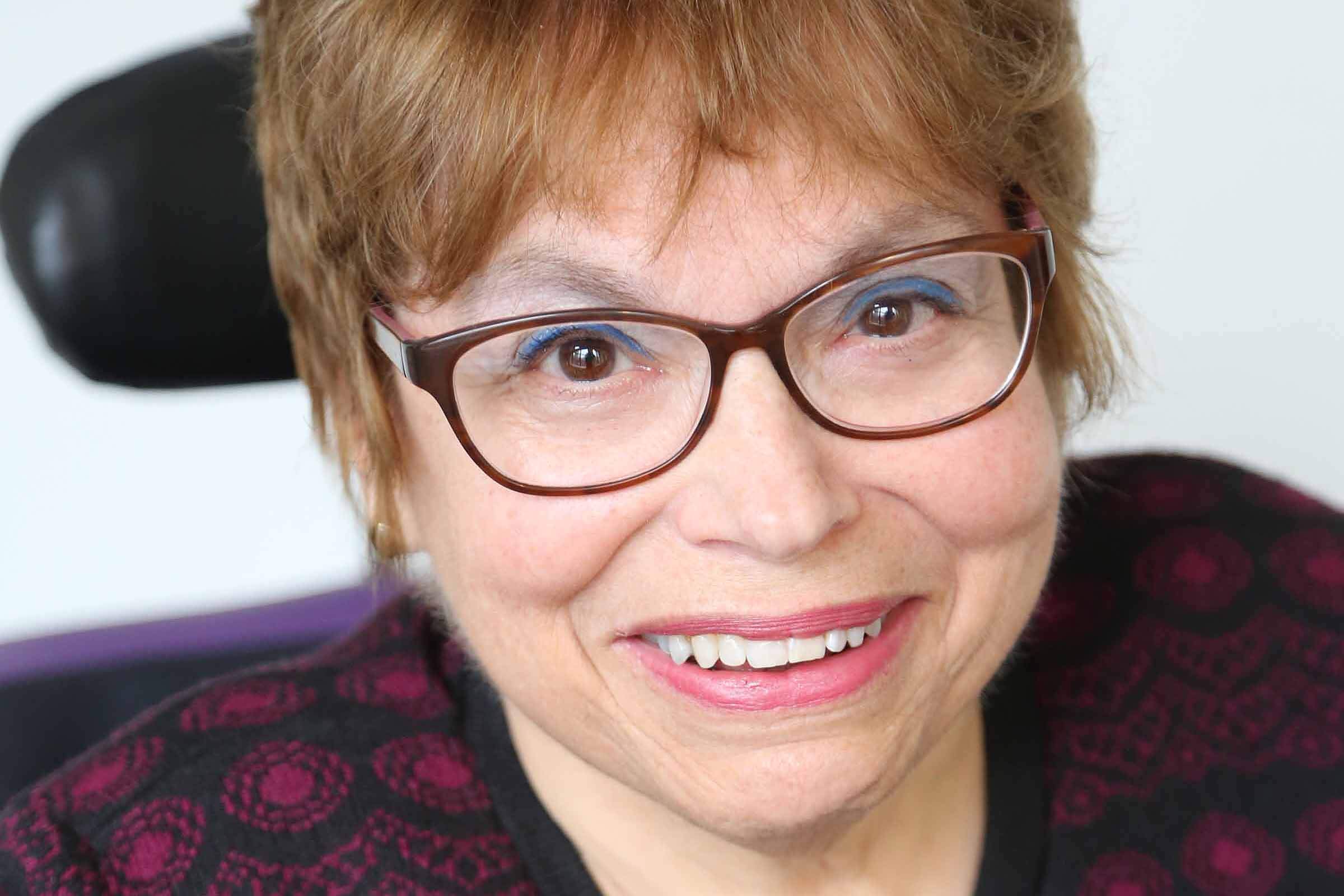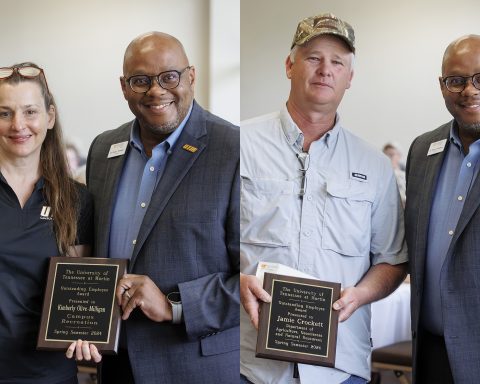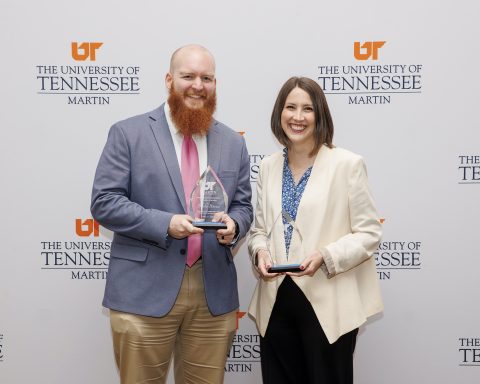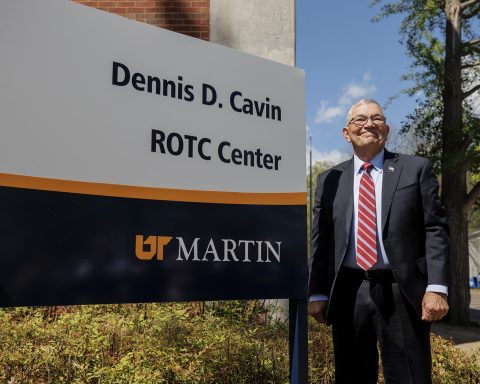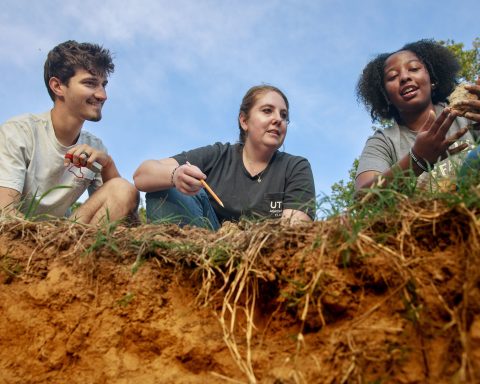Randy Boyd clearly enjoys leading the University of Tennessee System as president, and his history of public service and run for governor in 2018 set the stage for his current leadership role. Boyd shared his experiences running for the state’s highest office and encouraged others to pursue public-service opportunities during a WestStar Lunch Learn Leadership program March 23 at Central Distributors in Jackson. The programs are offered to UT Martin WestStar Leadership Program alumni and current class members. The audience included current elected officials and potential office seekers.
Boyd was appointed the UT System’s 26th president by the UT Board of Trustees on March 27, 2020, following 16 months as interim president after the retirement of Dr. Joe DiPietro. The longtime businessman, entrepreneur and philanthropist is the founder of Radio Systems Corp., a Knoxville-based, pet-related products business. He also chairs Boyd Sports and is owner of the Tennessee Smokies, Johnson City Doughboys, Greeneville Flyboys, Kingsport Axmen and Elizabethton River Riders baseball teams. He also is part owner of the Memphis Redbirds.
“It taught me that if you really want to make a difference in the world, you can do a lot as a philanthropist, you can do a lot as a businessperson, but if you really want to make an impact, the best place is in public service.”
Boyd’s extensive public-service resume includes chairing the Tennessee Higher Education Commission and serving as Tennessee Department of Economic and Community Development commissioner. He also served as Gov. Bill Haslam’s special adviser for higher education, led creation of the Tennessee Promise and Drive to 55, and was the founder and chairman of Tennessee Achieves. Each of these initiatives aimed at increasing the number of Tennesseans with post-secondary degrees. Boyd said about his year as special adviser to the governor, “It taught me that if you really want to make a difference in the world, you can do a lot as a philanthropist, you can do a lot as a businessperson, but if you really want to make an impact, the best place is in public service.”
While serving in the Haslam administration, Boyd made the decision in 2017 to enter the governor’s race and later lost his bid for the GOP nomination to Gov. Bill Lee, but what Boyd learned on the long campaign trail provided wisdom to share about seeking elected office. First, important to know as a candidate is that people know surprisingly little about government or their elected officials. “We have a country that has incredibly low civic engagement,” he said. “We know that through our voter turnout.” At the state level, Tennessee’s voter turnout needs to improve, and he sees the state’s 4-H program as one important avenue to involve young people in the election process and government through activities such as Tennessee and National 4-H Congress.
Boyd told about different campaign experiences, which generated audience questions, including his thoughts on campaign must-haves and pitfalls. Articulating a passion for why you’re running for office and expressing this passion in 60 seconds or less are key first steps. “Nobody’s going to listen to you for very long, and they’ll remember even less. … Why is it I want to do this? Why do you care?” he said. “And then try to find a way to put it in as short of phrase as you possibly can that you repeat over and over and over.”
Next, he said that a person running for office must be prepared to make a sacrifice. Political campaigns mean hard work and long hours whether running locally or for statewide office. “Most often the people that win are the people that work the hardest, and it’s just a lot of work,” he said, adding that choosing the right people to work with is important, especially when seeking higher-level positions. “Selecting the right team is critical, making sure that you have people that not only know what they’re doing and are good at it, but that you’re compatible with because you’re going to spend a lot of time with them,” he said. “I can say I spent more, way more time with my campaign manager over those 18 months that I did with my wife by a long shot.”
Boyd also stated his dislike for negative campaigning, explained the hard work of campaign fundraising and talked about the need to remain humble throughout the process. Given his experiences in business, government and higher education, Boyd was asked to comment on the strengths of his leadership style.
“First have a mission, something that’s aspiring, inspiring, something that encourages people to want to do better, to try to make a difference that pulls them together, and a great mission lives between the probable and the impossible,” he said.
“First have a mission, something that’s aspiring, inspiring, something that encourages people to want to do better, to try to make a difference that pulls them together, and a great mission lives between the probable and the impossible,” he said. Effective leaders must also surround themselves with great people, create an achievable strategy and have a set of values. Once these four things are in place, Boyd stressed the importance of being a leader who listens, is transparent and collaborative, which are qualities that have guided him in his many leadership roles.
Others attending the WestStar session included UT Martin Chancellor Keith Carver, businessman and one-time gubernatorial candidate Mike McWherter, and Dr. Charley Deal, UT Martin vice chancellor for university advancement. More information about the WestStar Leadership Program is available by contacting Virginia Grimes, WestStar assistant director, at 731-881-7787.
###

